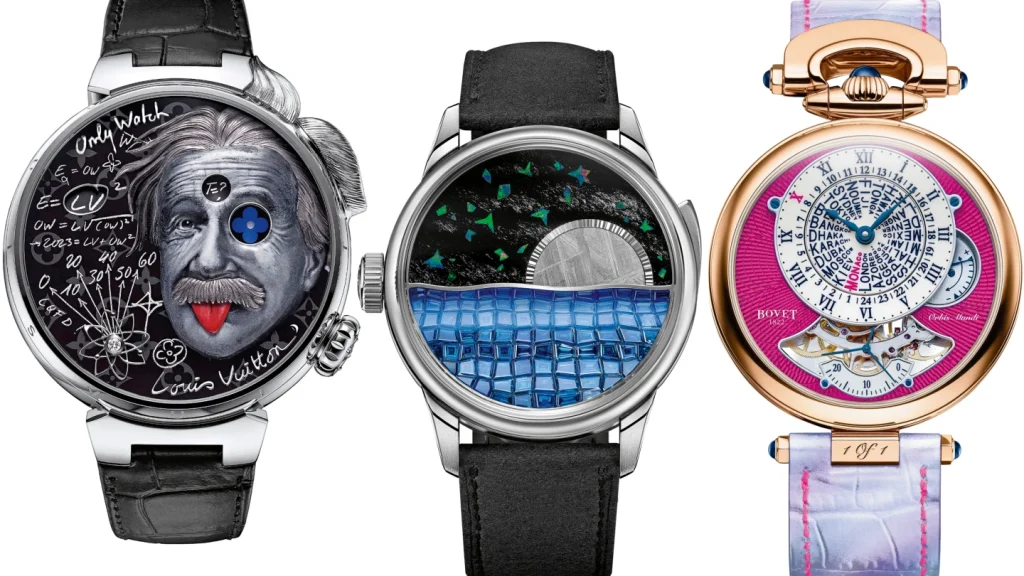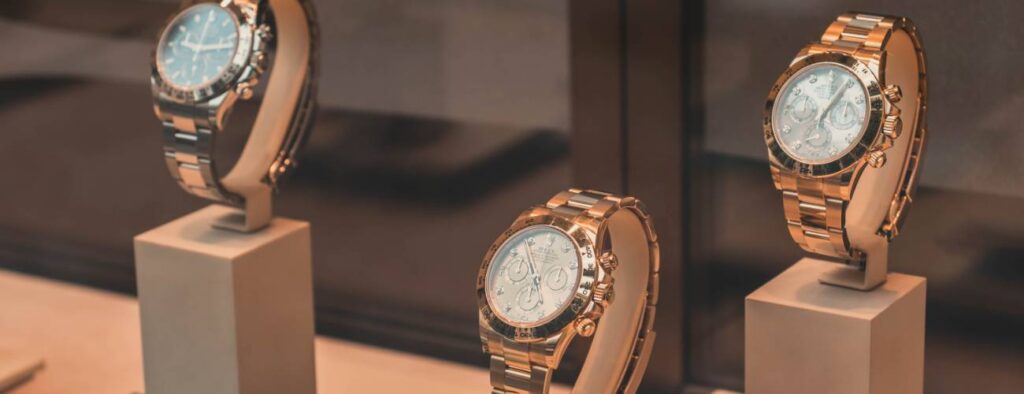Blog
The Hidden Details That Make Luxury Watches Stand Out
Luxury watches are much more than instruments for telling time. They represent artistry, craftsmanship, heritage, and a dedication to precision that transcends functionality. What sets these timepieces apart are the hidden details—those intricate elements that often go unnoticed by casual observers but are deeply appreciated by horology enthusiasts and collectors.
In this article, we’ll uncover the subtle yet significant details that make luxury watches stand out, from the materials used to the engineering marvels concealed within their cases.
1. Exceptional Craftsmanship
At the core of every luxury watch is the unparalleled craftsmanship that defines its creation. These timepieces are often hand-assembled by skilled watchmakers, ensuring every component is meticulously inspected and aligned.
Hand-Finished Movements
Luxury watches often feature movements that are polished, beveled, and engraved by hand. Techniques like Côtes de Genève, circular graining, and perlage are not only aesthetic but also showcase the dedication of the watchmaker to perfecting even the hidden parts of the watch.
Attention to Detail
Elements like the chamfered edges of gears, blued screws, and perfectly aligned jewels highlight the level of precision involved in crafting these pieces. These details are often visible through sapphire crystal case backs, giving wearers a glimpse of the artistry inside.
2. Use of Premium Materials
Luxury watches are distinguished by the use of high-quality, durable, and often rare materials. These materials not only enhance the watch’s appearance but also contribute to its longevity.
Precious Metals
Materials such as 18k gold, platinum, and titanium are commonly used in the cases and bracelets of luxury watches. These metals not only add a sense of prestige but also ensure the watch remains resistant to corrosion and wear.
Exotic Materials
Some high-end watches incorporate materials like ceramics, carbon fiber, and even sapphire crystal cases for added durability and a modern aesthetic.
Unique Alloys
Brands like Rolex have developed proprietary alloys, such as Rolesor (a combination of gold and steel) and Everose Gold (a rose gold alloy with enhanced durability), to ensure their watches remain unique.

3. Precision Engineering
A hallmark of luxury watches is their exceptional precision. Whether powered by a mechanical or quartz movement, these timepieces are rigorously tested to meet exacting standards.
High-Performance Movements
Luxury watches often house in-house movements, designed and manufactured by the brand. These movements are built for durability and precision, with features like silicon escapements for enhanced accuracy and resistance to magnetic fields.
Complications
Complications, such as perpetual calendars, moon phases, and minute repeaters, demonstrate the watchmaker’s technical mastery. These features are often designed to function seamlessly for decades.
4. Iconic Design Elements
Luxury watches stand out through their design, which often combines timeless aesthetics with subtle branding.
Signature Dial Features
Brands like Audemars Piguet and Patek Philippe incorporate unique dial patterns, such as the Grande Tapisserie or guilloché designs, adding depth and texture to the watch face.
Distinctive Case Shapes
The iconic shapes of watches like the Rolex Oyster Perpetual or the Cartier Tank are instantly recognizable, thanks to their innovative designs and historical significance.
Legible and Balanced Dials
Luxury brands prioritize clarity and symmetry in their dial layouts, ensuring the watch remains elegant and functional.
5. Innovation and Heritage
Luxury watchmaking is a blend of innovation and tradition. Brands honor their heritage while pushing the boundaries of technology.
Historical Significance
Many luxury watches pay homage to their origins, incorporating designs or features that reference their storied past. For example, the Omega Speedmaster is celebrated as the first watch worn on the moon, while the TAG Heuer Monaco revolutionized watch design with its square case.
Cutting-Edge Technology
Luxury watch brands continue to innovate, integrating features like GPS tracking, solar power, and smart connectivity while maintaining traditional aesthetics.
6. Exceptional Longevity
Luxury watches are built to last for generations. This longevity is achieved through robust materials, precise engineering, and meticulous maintenance.
Sapphire Crystal
Sapphire crystal, used for the watch face, is highly scratch-resistant and ensures clarity over decades of use.
Water Resistance
High-end watches are rigorously tested for water resistance, with some models designed to withstand extreme depths, like the Rolex Submariner or the Omega Seamaster.
Serviceability
Luxury watches are designed for long-term serviceability, with brands offering maintenance programs to ensure the watch retains its performance and appearance.
7. Exclusivity and Customization
The rarity of luxury watches adds to their allure. Many models are produced in limited numbers, making them highly sought after by collectors.
Limited Editions
Brands often release special editions to commemorate milestones, featuring unique designs or complications that set them apart.
Custom Engravings
Many luxury watches offer personalization options, such as engraved case backs or unique dial configurations, allowing owners to add a personal touch.

8. Iconic Branding and Legacy
Luxury watches often carry the legacy of their brand, embodying decades—or even centuries—of expertise and innovation.
Reputation and Recognition
Names like Rolex, Patek Philippe, and Audemars Piguet are synonymous with excellence, commanding respect in the world of horology.
Taglines That Resonate
Patek Philippe’s famous tagline, “You never actually own a Patek Philippe. You merely look after it for the next generation,” captures the timeless appeal and heirloom quality of luxury watches.
9. The Emotional Connection
Beyond their technical and aesthetic features, luxury watches create an emotional connection with their owners. They often mark significant life events—graduations, weddings, or career milestones—and become cherished possessions.
A Symbol of Achievement
Owning a luxury watch is often seen as a symbol of success and personal achievement, representing hard work and dedication.
Passing Down a Legacy
Luxury watches are frequently passed down through generations, carrying the stories and memories of their owners.
Conclusion
Luxury watches are far more than timekeeping devices; they are symbols of artistry, innovation, and legacy. The hidden details—the hand-finished movements, use of rare materials, precision engineering, and iconic designs—are what truly set these timepieces apart.
Whether you’re an avid collector, a horology enthusiast, or someone considering their first luxury watch, understanding these details can deepen your appreciation for the craftsmanship and dedication that go into each piece. Owning a luxury watch is not just about telling time—it’s about owning a masterpiece that reflects history, innovation, and the personal stories we attach to them.

